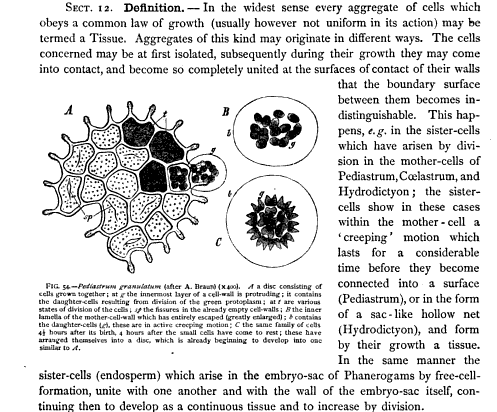The answer as to why the term brother is never used in context with belonging to the same group, class, or organisation could lie in biology.
Women bear children, they are able to generate, and create new life. Likewise, if a company expands and creates (procreates) a new company, that "baby" company is related to its parent.
Sister cell
From Text-book of Botany: Morphological and Physiological, 1875, an illustration showing the protruding cell-wall containing the daughter-cells.

B the inner lamella of the mother-cell-wall which has entirely escaped (greatly enlarged).
SE Biology
During the days when philosophers used to debate, they tended to regard reproduction as a feminine trait. So naturally organisms/cells capable of producing offspring are also given a feminine trait. The parent cell is often called the mother cell, and the daughter cells are so named because they eventually become mother cell themselves.
It is no coincidence that a sister company is also called (less so today) a daughter company
Thus a sister site can be created or set up, and the main site is said to be the parent. Radio and TV stations, own sister stations and channels. This dispels the concept that the feminine pronoun is used as a term of affection. In a historical context, there is nothing cosy or affectionate about being ‘owned’ by a larger company, although it is in the parent company's best interest that their "daughter company" is equally successful.
sister company
A company which is owned by the same parent company as another company. One parent company can have one or many subsidiaries, which all are sister companies to each other. Business Dictionary
Sister Ships
An excerpt from The Naval Chronicle (including the biographical history of the Royal Navy of the United Kingdom), written in 1813, shows that the term sister ship was firmly established by the 19th century, also note the feminine pronoun used.
She is the sister ship [A French ship named Andromaque], in every respect, to the Weser; for their keels were laid down on the same day; they were launched the same day; sailed the same day ; were dismasted on the same day; were brought into Plymouth on the same day; and had a similar number of men, and weight of metal. The capture of these two vessels may perhaps be considered as doing Buonaparte a favour, inasmuch as it may spare him hereafter many unpleasant recollections attached to their names.
The excerpt illustrates perfectly the meaning of sister ship in that period. Today, the International Maritime Organization includes the following characteristics:
- A sister ship is a ship built by the same yard from the same plans.
- The acceptable deviation of lightship displacement should be between 1 and 2% of the lightship displacement of the lead ship, depending on the length of the ship.
Wikipedia
The earliest example of sister ship I found on Google books, was its plural form, in a French-English Naval dictionary, titled Vocabulaire des termes de marine, printed in 1799.

All of which may appear to contradict my earlier statement, but I don't think it does. The term sister is derived from biology, and in the shipping industry, it refers to a ship built at a later date but following the same design and specifications as the "older sister ship". The parentage (mentioned by @BaconBits in the comments below) is the same, therefore any ship ‘created’ in the same yard, with the same hull, a similar weight, and equipment etc. is, in a figurative sense, a sister.



brotherused like this. And regarding your last line, companies or websites don't sound like particularly feminine things to me. Interesting question, though. +1.